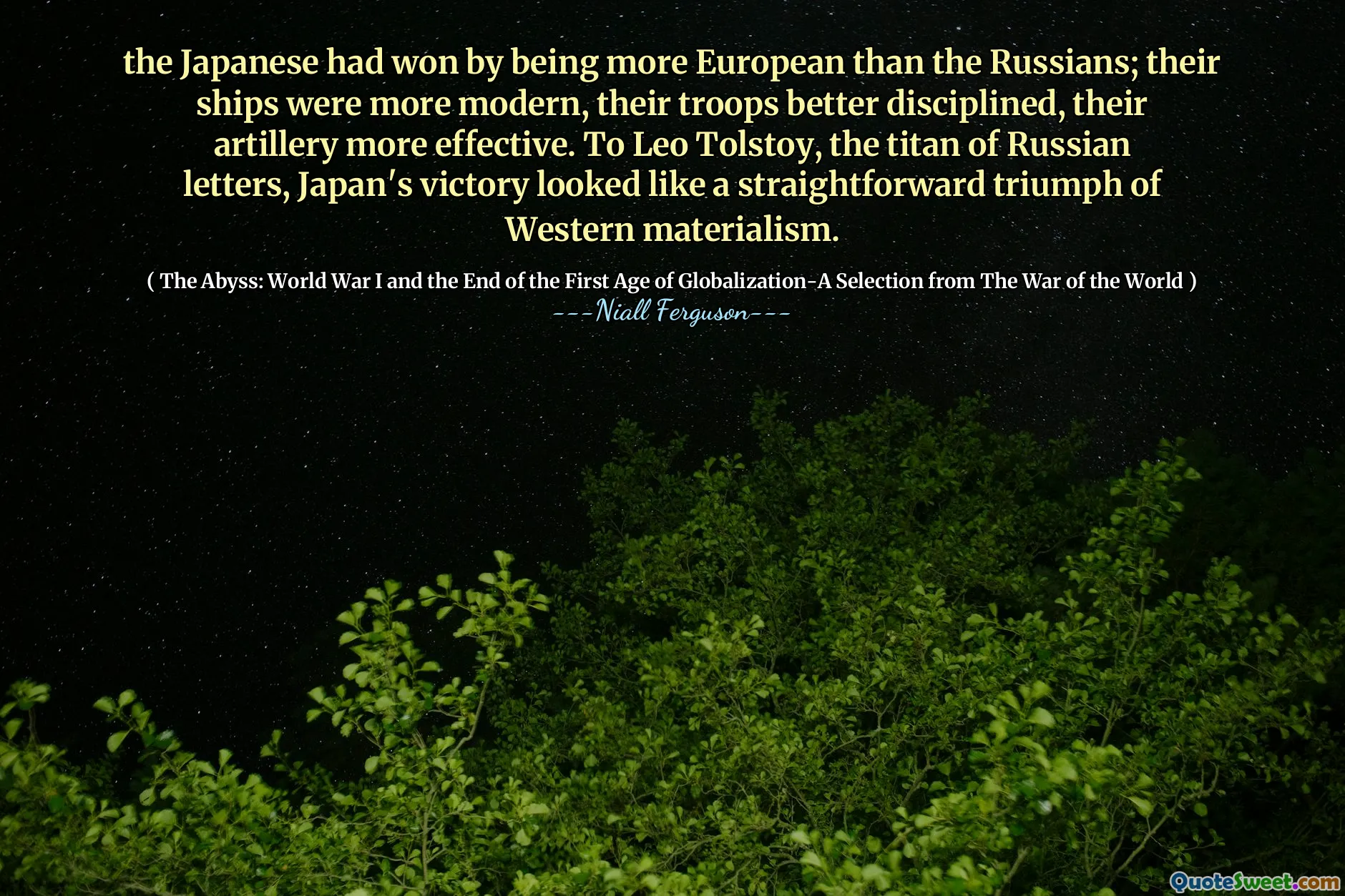
the Japanese had won by being more European than the Russians; their ships were more modern, their troops better disciplined, their artillery more effective. To Leo Tolstoy, the titan of Russian letters, Japan's victory looked like a straightforward triumph of Western materialism.
In Niall Ferguson's exploration of the Russo-Japanese War, he highlights how Japan emerged victorious by adopting and excelling in Western military technology and strategies. Their ships were advanced, the discipline of their troops surpassed that of the Russians, and their artillery proved to be more effective, allowing them to outperform their larger adversary. This transformation positioned Japan as a formidable power in contrast to Russia.
Notably, the renowned Russian author Leo Tolstoy viewed Japan's success as a representation of Western materialism triumphing. He perceived the war as a clear demonstration of how Japan had embraced Western methods, underscoring a broader shift in global dynamics where non-Western countries could leverage European advancements to their advantage.











